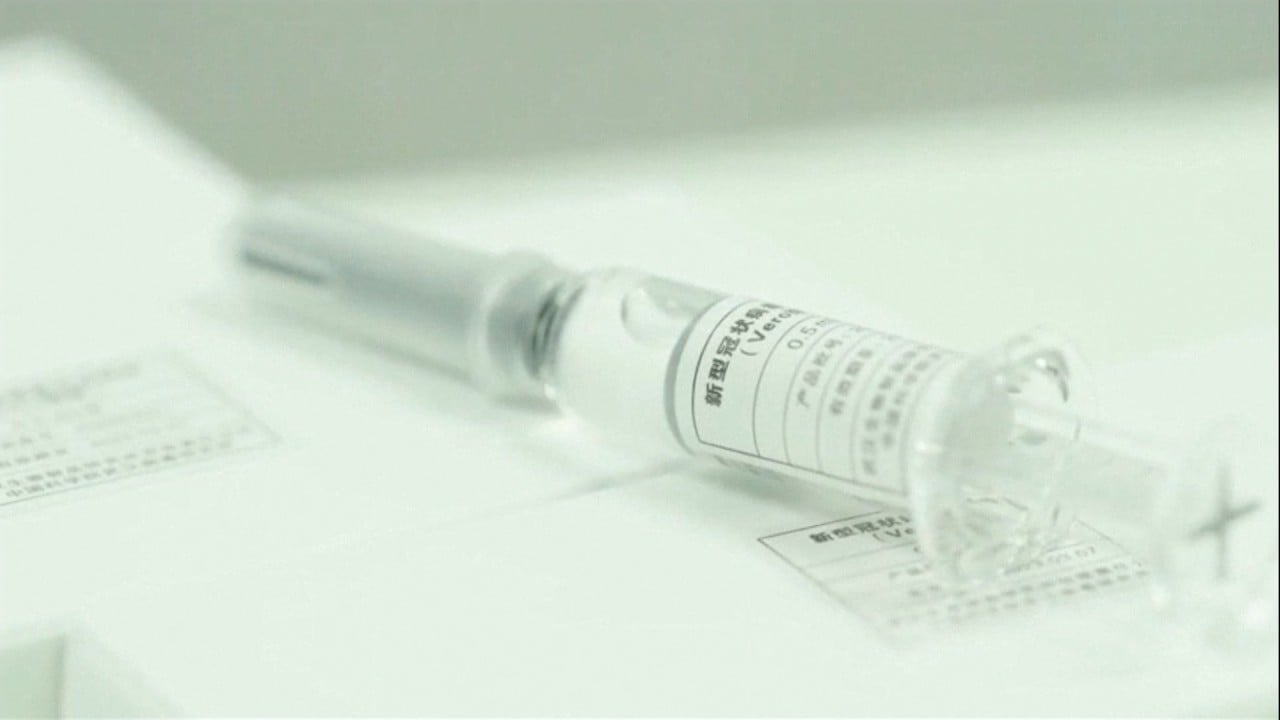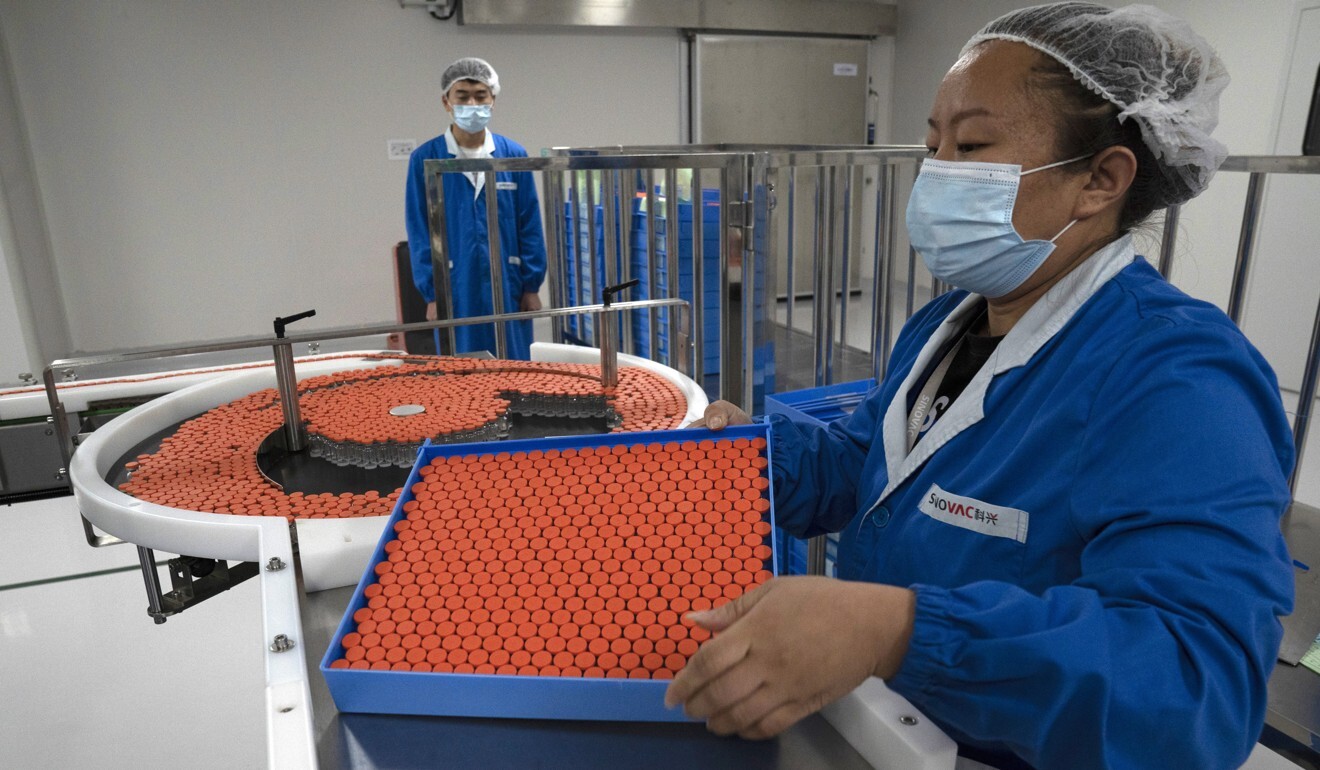
Coronavirus: more countries host final trials of Chinese-made vaccines
- People in countries from Peru to Morocco are being injected with experimental vaccines made by three Chinese companies
- China offering priority access to countries is a move seen as an attempt to further Beijing’s foreign policy agenda
In recent weeks, officials from Mexico, Bangladesh and Pakistan have been quoted in local media and Reuters reports citing their local trials as a means to gain future access to approved vaccines.

01:39
China prepares for coronavirus vaccine mass production though clinical trials are not yet complete
Beijing-based Sinovac Biotech, one of the three Chinese drug makers with vaccines in the last stages of testing, said on Thursday that nations conducting its phase 3 trials would get access to doses at the same time as China, Bloomberg reported. Those trials are under way in Indonesia, Brazil and Turkey, with Bangladesh expected to begin soon.
In the United Arab Emirates, the first foreign country to run a phase 3 trial of vaccines developed under state-owned company Sinopharm, shots have already been administered to citizens outside the trials under emergency use authorisation.
Such arrangements come alongside an effort from Chinese leadership to promote Chinese-made vaccines as a “global public good” and offering priority access to a number of countries, a move observers see not just as linked to public health, but also meant to further Beijing’s foreign policy agenda.
Do Chinese Covid-19 vaccines work, and which countries will get them?
The access to vaccine doses was a likely reason the UAE was quick to approve cooperation with China’s Sinopharm on the trials, according to Jonathan Fulton, an assistant professor of political science at Zayed University in Abu Dhabi. But the partnership is also linked to the political ties between the two countries, he said.
“You can’t separate the two. They’ve coordinated so much on political and economic affairs in recent years, and it’s a pretty deep, multifaceted relationship,” he said.
Such partnerships on clinical trials leave room for Chinese companies to potentially play a significant role in Covid-19 vaccine access, should the vaccines prove effective, according to Yanzhong Huang, a senior fellow for global health at the Council on Foreign Relations in New York.
“Chinese engagement with those countries through partnership on clinical trials, for example, could help mitigate this gap in access to vaccines between rich and poor countries,” he said, adding that such countries may not need to make significant investments to secure access to doses or manufacturing rights for Chinese-developed vaccines.

Giving priority access for medical products to countries that participate in clinical trials is standard industry practice, experts say, and rooted in ethics: those that help to test if a drug or vaccine works should benefit if it proves successful.
“For smaller countries especially, it could make a huge difference; it could mean that a certain country had drawn a lucky lottery ticket in signing up to that particular trial” if the vaccine proves safe and effective, said Søren Holm, a professor of bioethics at the University of Manchester in Britain.
With China no longer having widespread local transmission of the virus, according to official data, Chinese vaccine makers need to find places where there are enough new infections to test efficacy. Overseas trials can also ensure that the products are tested on a more diverse population, an important safety metric.
The leading Chinese companies – CanSino, Sinovac and Sinopharm – which together have four candidates in phase 3 trials, are not alone in turning to overseas partners. Britain’s AstraZeneca and US companies Johnson & Johnson and Pfizer, working with German partner BioNTech, are among those also engaging overseas trials in a handful of countries for their experimental Covid-19 vaccines.
Rebound and reflection in Wuhan as Covid-19 death toll nears 1 million
Some countries such as Brazil, Russia and Peru are not just settling for arrangements with one, but have approved trials of multiple vaccine candidates.
But the number of clinical trial arrangements between Chinese companies and foreign partners is notable for a country that before this had a very small footprint in the global vaccine market, experts have said.
This wide exposure in the vaccine arena does not come without risk, both for China and the countries involved, according to University of Technology Sydney senior lecturer Lai-Ha Chan, who researches China’s health diplomacy.
One reason is for this is that there’s no guarantee that China’s vaccines, still in phase 3 trials, will work, she said.
“In the long term, how effective this is for China’s diplomacy depends on how effective the vaccine is,” she said.

